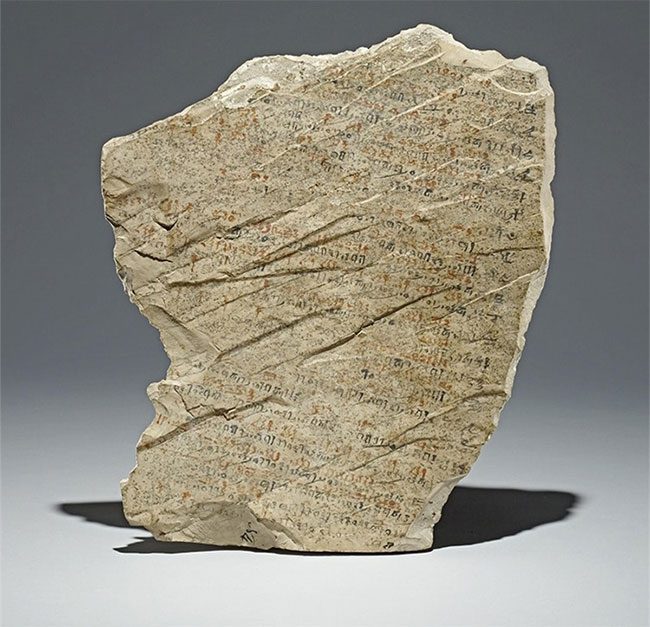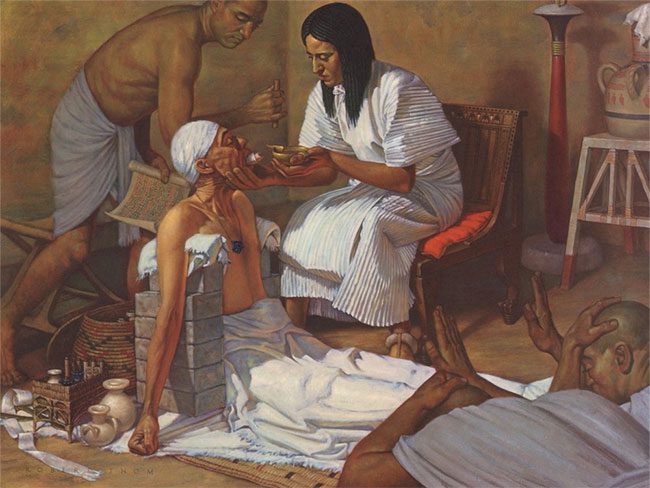Finding a balance between life and work is not a “modern” issue exclusive to our time. It turns out that even in ancient times, the Egyptians struggled with this daily challenge. Moreover, they were closely monitored by their “superiors.”
A stone tablet recently stored in the British Museum has proven this. This ancient document, recorded in 1250 BC, details the leave schedule and reasons for absence of 40 workers.

Stone tablet documenting the leave schedule of ancient Egyptian workers.
This limestone tablet, over 3200 years old, is inscribed in hieroglyphs from the New Kingdom, using red and black ink. The entries are clear and date-specific, such as “the fourth month of winter, day 24.”
On that day, a worker named Pennub requested a day off because his mother was ill. Another worker stayed home due to feeling unwell. A person named Huynefer frequently suffered from “eye pain,” while his colleague Seba had been bitten by a scorpion. Other common reasons included embalming a deceased relative.
Interestingly, some requests for leave sound quite bizarre to modern ears, yet were very common among workers of that time. For instance, brewing beer was a frequent reason for absence. In ancient Egypt, beer was an important alcoholic beverage, associated with the gods, making the act of brewing highly respected.
There were also some reasons that “seem unreasonable but are quite convincing.” Some individuals requested leave because “their wife or daughter was bleeding.”
Archaeologists suggest this was likely a euphemism for menstruation. It is believed that during such times, men needed to stay home to assist with household duties. While this might not be a valid excuse in modern times, we can guess that ancient Egyptians were just as creative and “resourceful.”
According to various documents from this period, the most common reason for absence was health-related issues, accounting for about 30% of total absences at work sites. However, the ancient Egyptian government seemed to place great importance on workers’ rights, as they had a fairly developed healthcare system.

Illustration of an ancient Egyptian physician caring for a patient.
Workers who fell ill were still paid regularly, even if they were absent for several days. Furthermore, each project had a physician and assistants to take care of the health of their colleagues.
These “healthcare workers” received additional rations. It is also believed that providing healthcare for workers was not merely a noble act by the ancient Egyptian government, but rather a well-planned and systematic operation.


















































